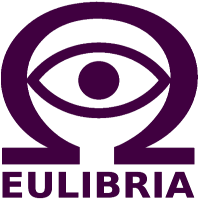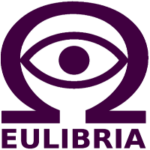From the Eulibrian perspective, moral codes are naturally-occurring sentient organisms, which evolve spontaneously in a symbiotic relationship with human colony organisms.
Typically, people are expected to feel (and act on) emotional reactions to various behaviours in themselves and others, based on the “rightness” or “wrongness” of these behaviours, according to the moral code(s) of the day.
It is part of the price of acceptance by the colony organisms, to subscribe to their moral principles. Rejection of these principles, by non-compliance, or even questioning, can provoke adverse reactions, ranging from disdain, to rejection, to forcible imprisonment, even to bodily mutilation and death.
From a recent social media meme: “If anyone needs the threat of Hell to be a good person, they’re not a good person. They’re just an asshole on a leash!”
It takes only superficial examination of colony organisms to realise their moral codes exist purely to sustain the health and longevity of the colony organism itself, with little regard for the longer term welfare of its constituent cells — the humans who participate in it. Furthermore, moral codes typically contain “unmentionable” provisions, listing various exemptions for those individuals of greatest wealth and power. For example, people generally agree that taxation is an unavoidable obligation, but conveniently turn a blind eye to the wealthiest paying little or no tax.
Various Left Hand Path traditions strongly encourage people to break various moral taboos, in an effort to discover depths of obligation and connection they have to the colony, and start disentangling themselves from these. Breaking of taboos can be highly effective, in a process of evolving towards personal Divine Sovereignty.
Eulibria goes a step further. While “cutting the ties that bind” can prove very freeing, much more work is needed if an individual is truly committed to their own evolution. Otherwise, one faces the risk of insidiously drifting back into the colony’s mesh, increasingly trapped in the illusion of personal sovereignty.
For an individual pursuing Eulibria’s “subtle power”, a moral code needs first and foremost to be their own creation. It can be as simple, or as long and detailed, as one sees fit.
Secondly, it needs imperatives which help an individual to become increasingly aware of limitations, inconsistencies, contradictions, distortions and blind spots in their “Identity Stack”.
Thirdly, it needs to continually and periodically expose the individual to appropriate levels of “disruption of Definition of Self”. Too little disruption, and one gets poisonously “comfortable”, and resistant to change and further evolution. Too much disruption, and one runs a serious risk of self-fragmentation, which can lead to highly self-destructive behaviours such as addictions, poverty, self-neglect. An ideal level of recurring Disruption is one which takes the individual to the very limit of what they can cope with, plus a tiny bit more.
Without the destructive third part, in the glorious laboratory of the Eulibria Universe, one risks becoming less and less the researcher, and more and more one of the vivisected rats, strapped to countless electrodes, being poked, prodded, poisoned and measured, then ultimately, discarded.
Destructive disruptions to the Self-Stack are as essential to one’s Eulibria Initiation, as are the rises and falls of the pistons in an internal combustion engine.
Ability to surrender, unflinching, into the disgusting deathly depths of these disruptions, to feel one’s worst, over and over, is richly rewarded
To this end, one’s skill, humility and honesty, not just in disentangling themselves from the “colony organism” moralities, but also in crafting and evolving one’s own, will be the measure of their ascension in the Eulibria Presence, and the growth of their Subtle Power.

